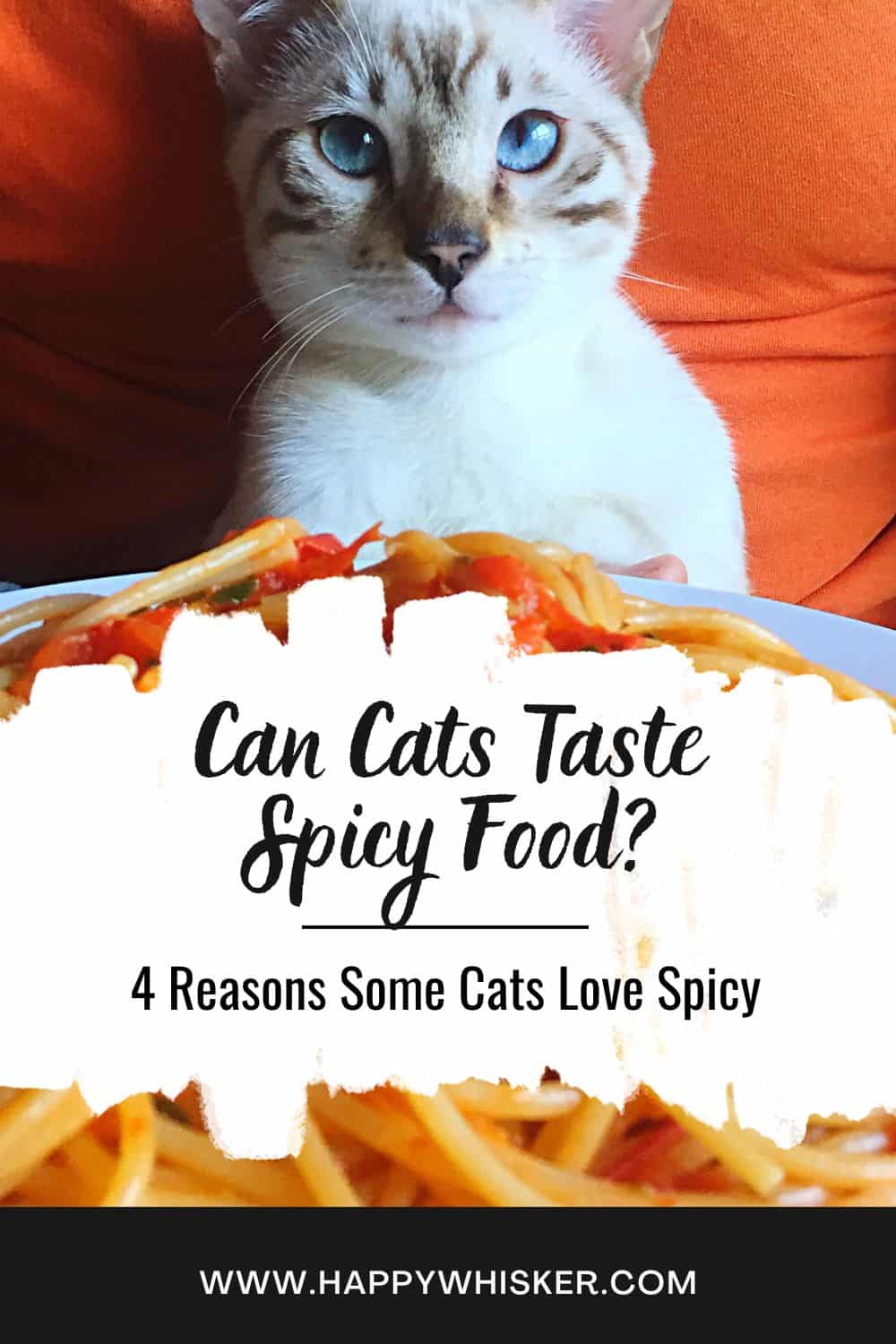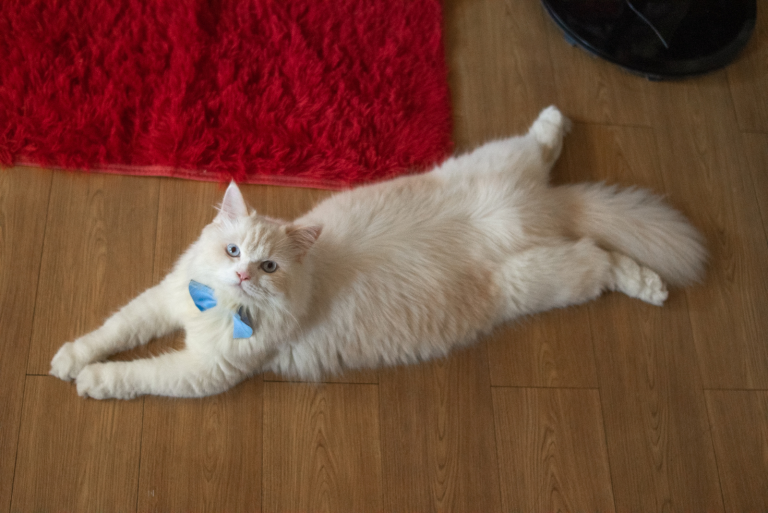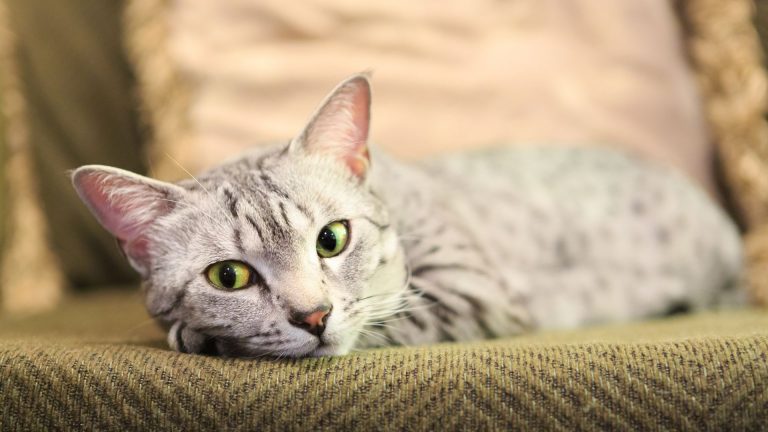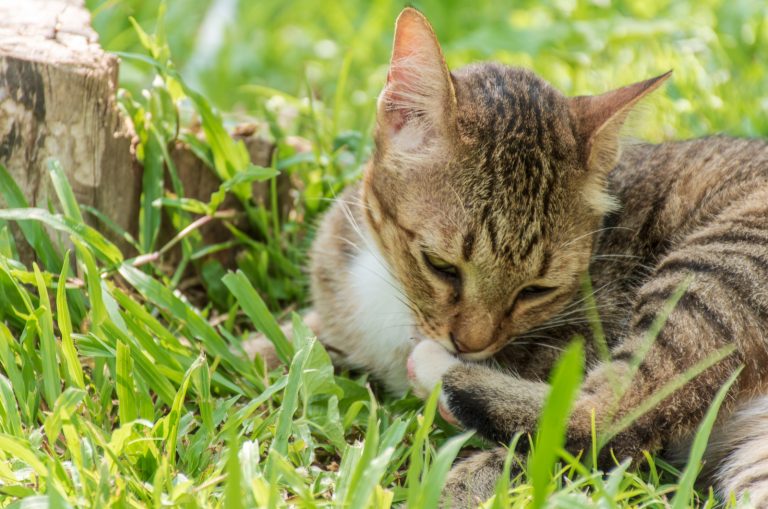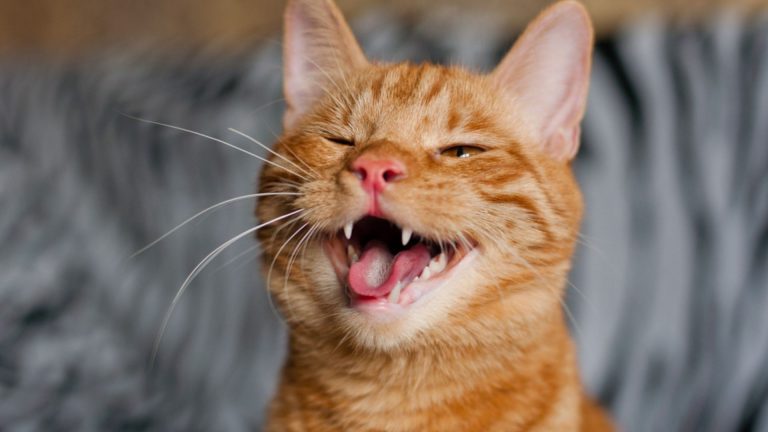Can Cats Taste Spicy Food? 4 Reasons Some Cats Love Spicy
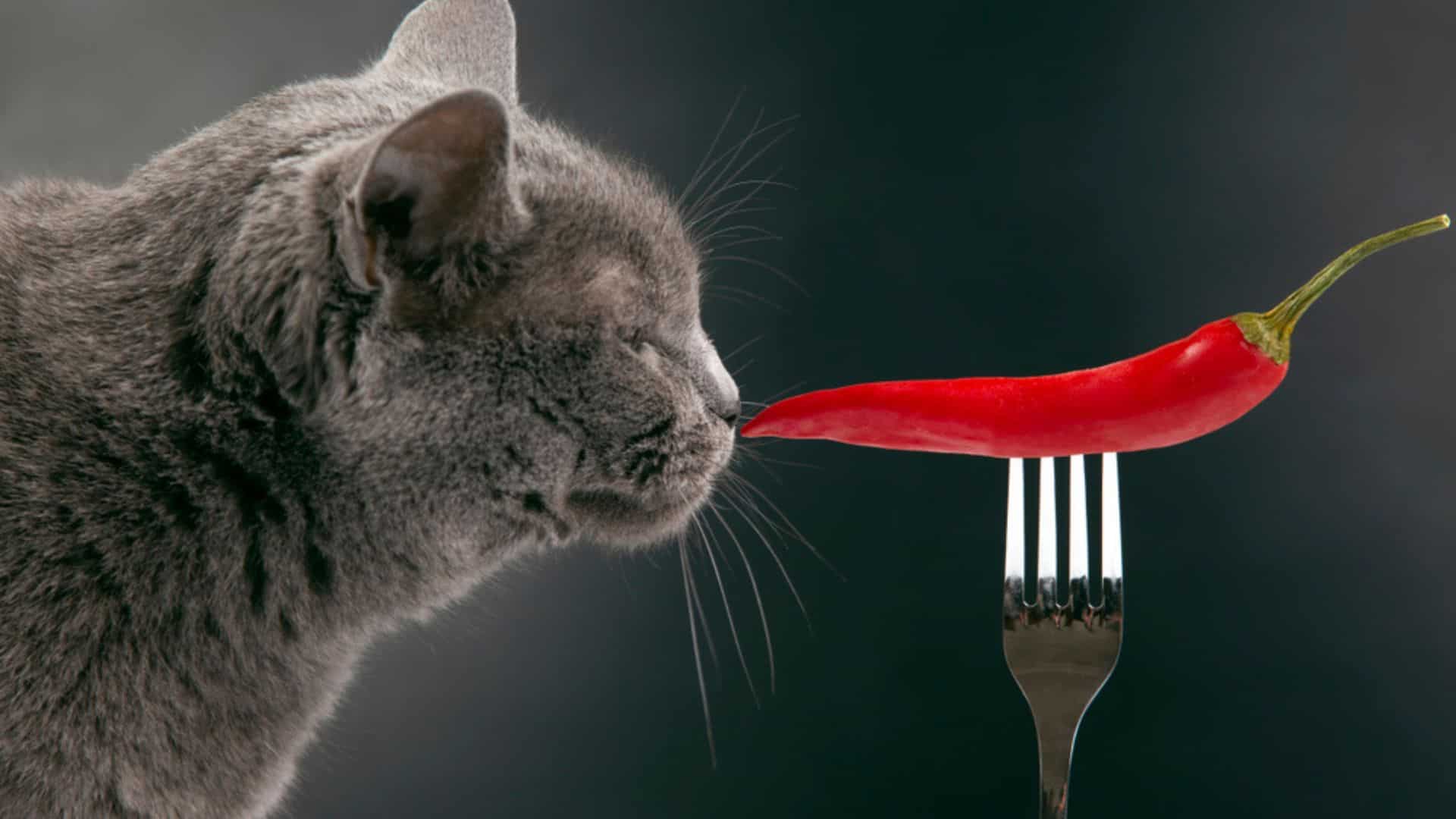
Does your kitty come to the dinner table whenever you’re eating curry? My cats certainly do, and I’m always tempted to put some curry on a plate and give it to them. However, I can resist their big eyes begging me for my (spicy) food!
Can cats taste spicy? Is spicy food safe for a cat to eat? The answer is relatively simple: Cats do feel the burning sensation of spicy foods! Spicy food is safe for cats only in tiny quantities. One bite too much, and your kitty will develop uncomfortable digestive issues.
Some kitties seem to love spicy food. How come? I will explain the mystery right here, right now, so make sure to read on!
Can Cats Taste Spicy Food?
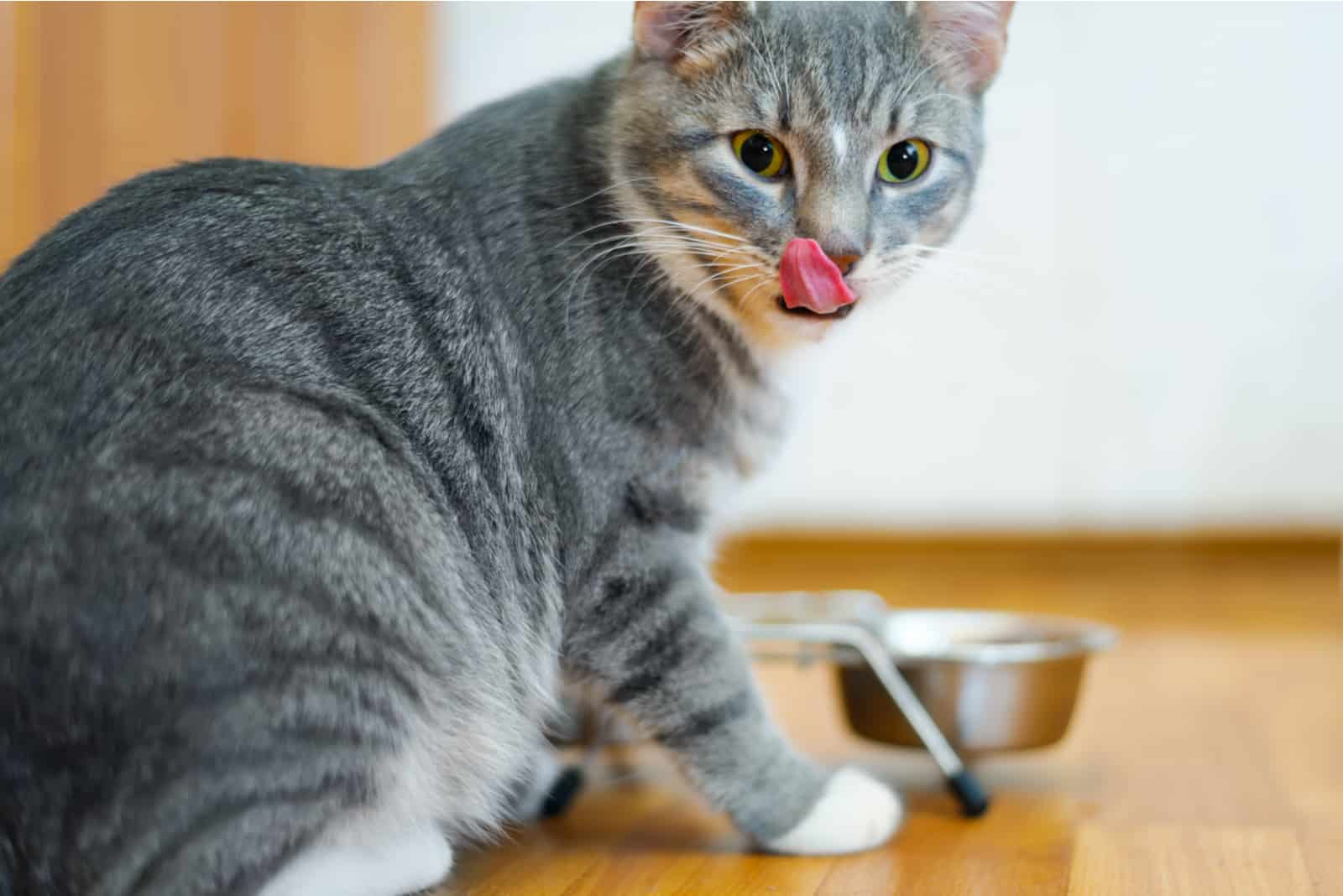
We quickly experience a burning, hot sensation in our mouths after eating spicy food. The same thing occurs to cats when they eat spicy food; they feel a burning sensation.
The difference between cats and us is that cats are not adapted to eating spicy food, and they detect even a tiny amount of spiciness. Your cat’s mouth is likely to start hurting due to the burning sensation with a lick of spicy food!
Of course, it depends on how spicy the food is. However, cats are much more sensitive to spiciness than humans, so what might not be very spicy for you can be very spicy for your feline.
What Is The Name Of The Chemical That Can Make A Cat’s Tongue Feel Spicy?
The burning sensation both cats and humans feel when they taste spicy food comes from capsaicin. When your cat chews on spicy foods like chili, this chemical is released.
Capsaicin is the active component in spicy food, and in mammals, capsaicin binds to the mouth in the area that feels the sensation of pain.
This chemical is often used as a natural cat repellent! It causes an uncomfortable burning sensation in the mouth, as well as teary eyes and digestive tract issues.
4 Things Cats Love About (Spicy) Food
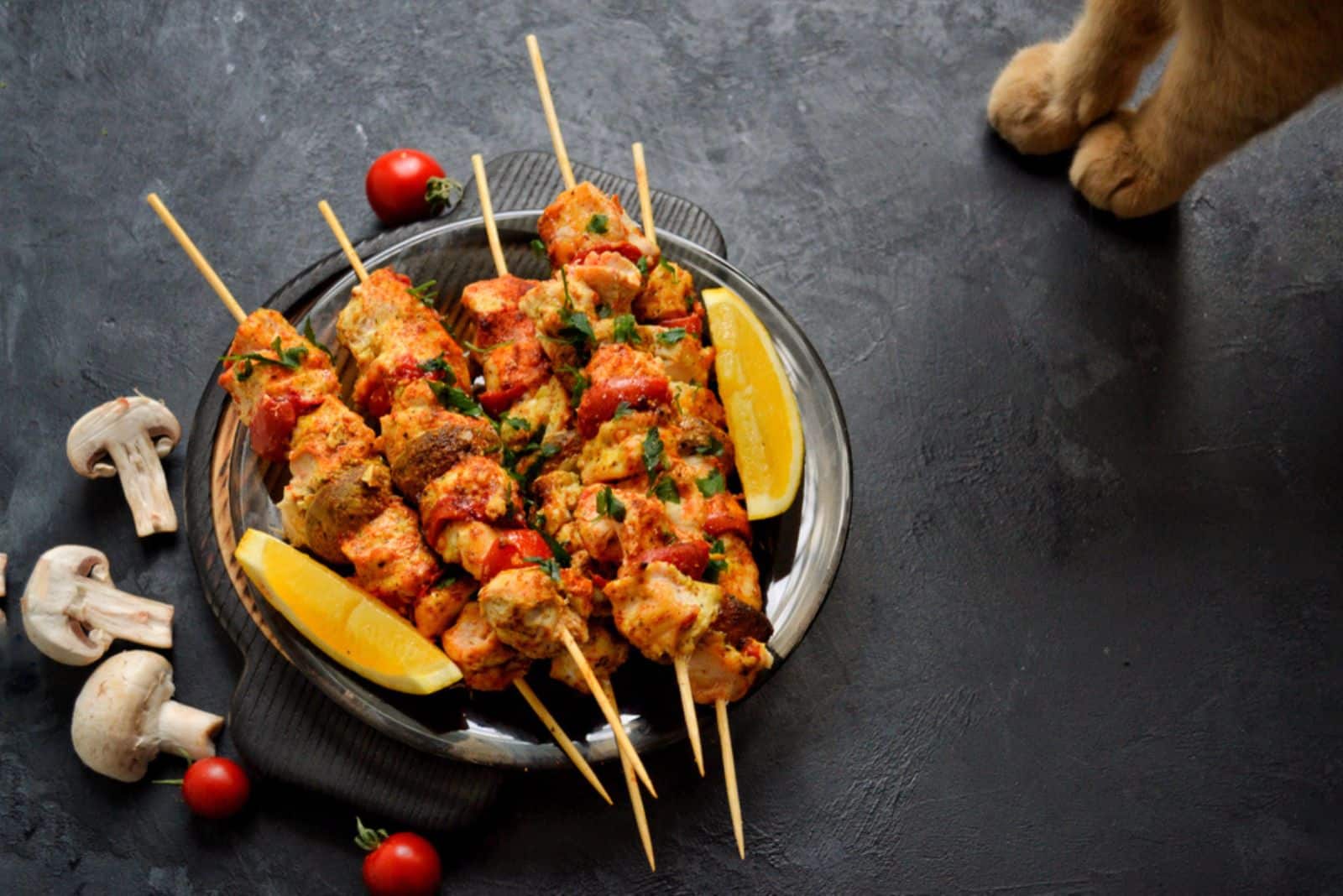
Most cats don’t like spicy food, but on the other hand, some cats might appear to like spicy foods. Your cat might beg for a bite whenever you have something hot and spicy on your plate!
You might be curious as to why they are drawn to it in the first place. Here are a few of the explanations.
1. There’s Meat In The Dish
Cats get drawn to spicy foods because of the other ingredients that usually come with spicy foods, such as meats. Spicy dishes (such as chili con carne) typically include meat, such as lamb, beef, or chicken. You probably already know that cats are crazy about meat.
Cooked beef, chicken, turkey, and bacon are your cat’s favorite dishes, which is why most cat food contains meat. Your spicy dish most likely includes some meat, which is naturally alluring to cats.
Most likely, your cat does not enjoy the dish’s spiciness but rather the meat within your dish. Our kitties are famous meat-eaters, so don’t be surprised to see your feline come up to you whenever you have some meat on the plate!
2. The Food Smells Amazing
Cats have a great sense of smell, so much so that their sense of smell is greater than a human’s by 14-fold. Cats have millions of odor sensors in their noses, which allow them to detect a wider variety of chemicals than humans. A cat’s nose is arguably the cat’s most significant sensory organ.
Cats have a keen sense of smell, which they utilize to find and identify their food. Does your cat come to the kitchen whenever you’re cooking something yummy? Some cats simply like sniffing whatever their owner is cooking!
So the next time you eat a spicy meal, remember that your cat usually only gets attracted by the smell. Spicy food usually has a strong, alluring smell, which is something your cat’s fantastic sense of smell will certainly recognize!
3. Cats Love Warm Food
Most cats don’t appreciate their food being cold, so cat owners give their pets food at room temperature or warmed up. If the wet food is warmed up, your cat will probably prefer it because it tastes and smells nicer.
We sometimes forget our cats have wild cat ancestry and once depended on catching and killing their food. Freshly-caught prey is still warm as they devour it, which is why cats are predisposed to food at warm temperatures.
If your fish is nicely warm, your cat will be attracted to it, whether it’s spicy or not! So, don’t be confused; your cat does not like spicy food, but rather all warm food!
4. Cats Love Food, Period
Food is food when you’re hungry, right? Your cat’s eyes will be drawn to any human food when they’re hungry, whether it’s spicy or not!
Therefore, your cat is likely drawn to your (spicy) food because you missed their feeding time, or your cat is a food-lover that can always have an extra bite!
In general, animals are not drawn to spicy food as it’s not a part of their usual diet. Aside from humans, the Chinese tree shrew is the only mammal that likes spicy cuisine! The majority of animals don’t like spicy food as they aren’t used to the burning hot sensation that follows consuming it.
Should Cats Eat Spicy Food?
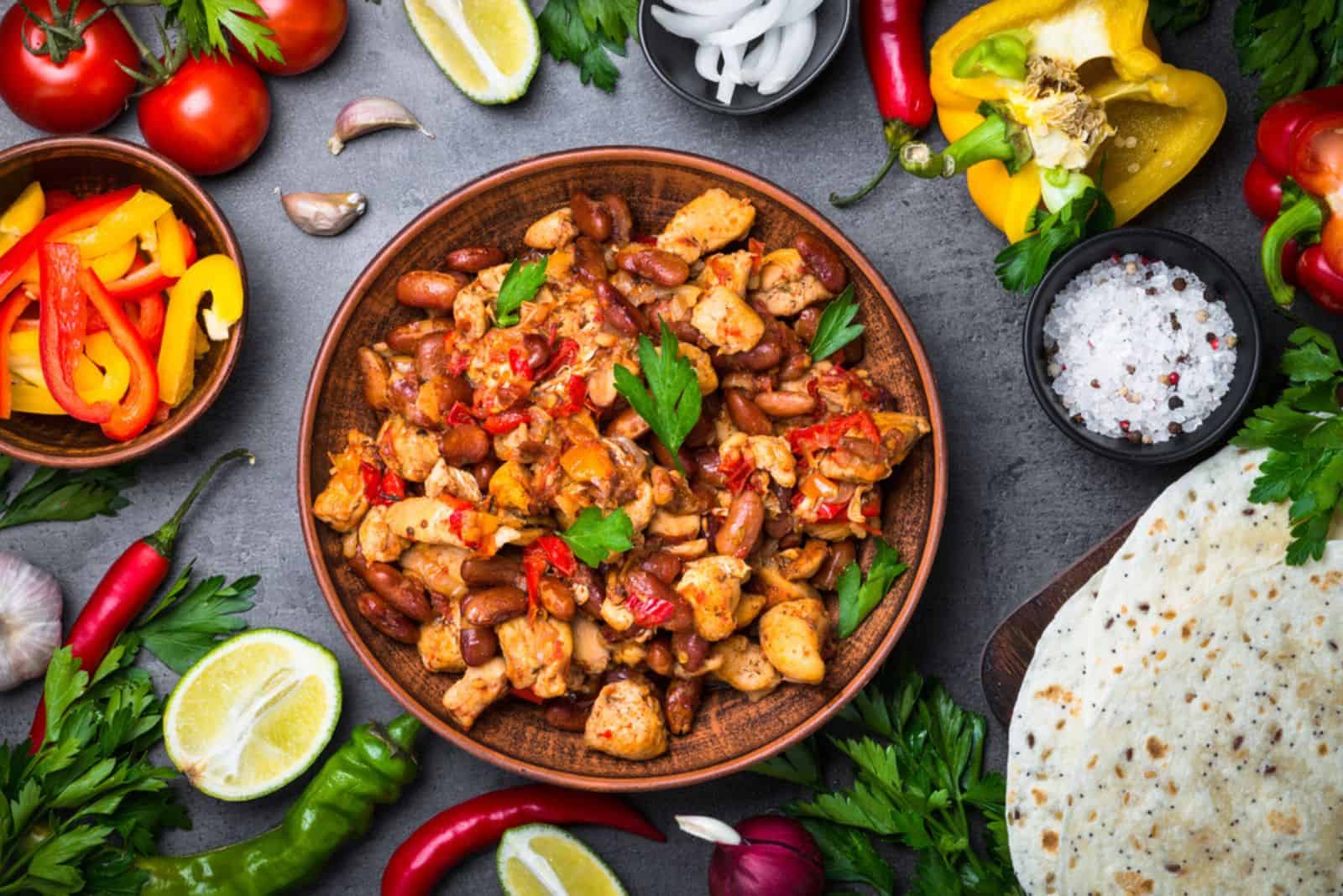
Cats enjoy pleading for table scraps. However, it’s important to think about what’s on the menu before giving in to those pleading eyes.
There are risks associated with a cat eating spicy food, especially if the spices in the dish have capsaicin. Not all spicy food contains capsaicin-containing spices (such as chili peppers); however, most do.
If the spicy food your cat ate contains capsaicin, the kitty could experience the following problems:
• Irritated mouth
• Irritated throat
• Runny nose
• Runny eyes
• Stomach pain
• Vomiting
• Diarrhea
• Dehydration
The list of potential side effects is not short, as you can see. Cats who consume a lot of spicy food usually experience digestive problems, including vomiting and diarrhea, which may even result in severe dehydration and bloody stools.
Therefore, it is best to keep your cat away from the table if you intend to indulge in a spicy meal. If not, you might have to clean up a mess or even pay for a costly trip to the vet.
What Happens If A Cat Eats Spicy Food?
When your cat tastes something spicy, it will discover that spicy food irritates the mouth, throat, and stomach lining. A cat which has eaten extremely hot chili will have a runny nose and eyes.
The pain that follows after having a lick or two of spicy food will induce your cat to either swallow or spit out the hot food. If a cat decides to spit the food out, nothing bad will happen, apart from a burning sensation in the mouth that will eventually pass.
If your cat eats something really spicy, it can experience vomiting, stomach discomfort, and diarrhea until the effects of the capsaicin have subsided.
It’s important to mention that spicy food toxicity is uncommon. To consume enough capsicum to be toxic, your cat must consume 1% of its body weight in spicy food. As a result, if your cat has diarrhea after eating spicy food but otherwise seems fine, don’t be alarmed.
Can My Cat Eat…
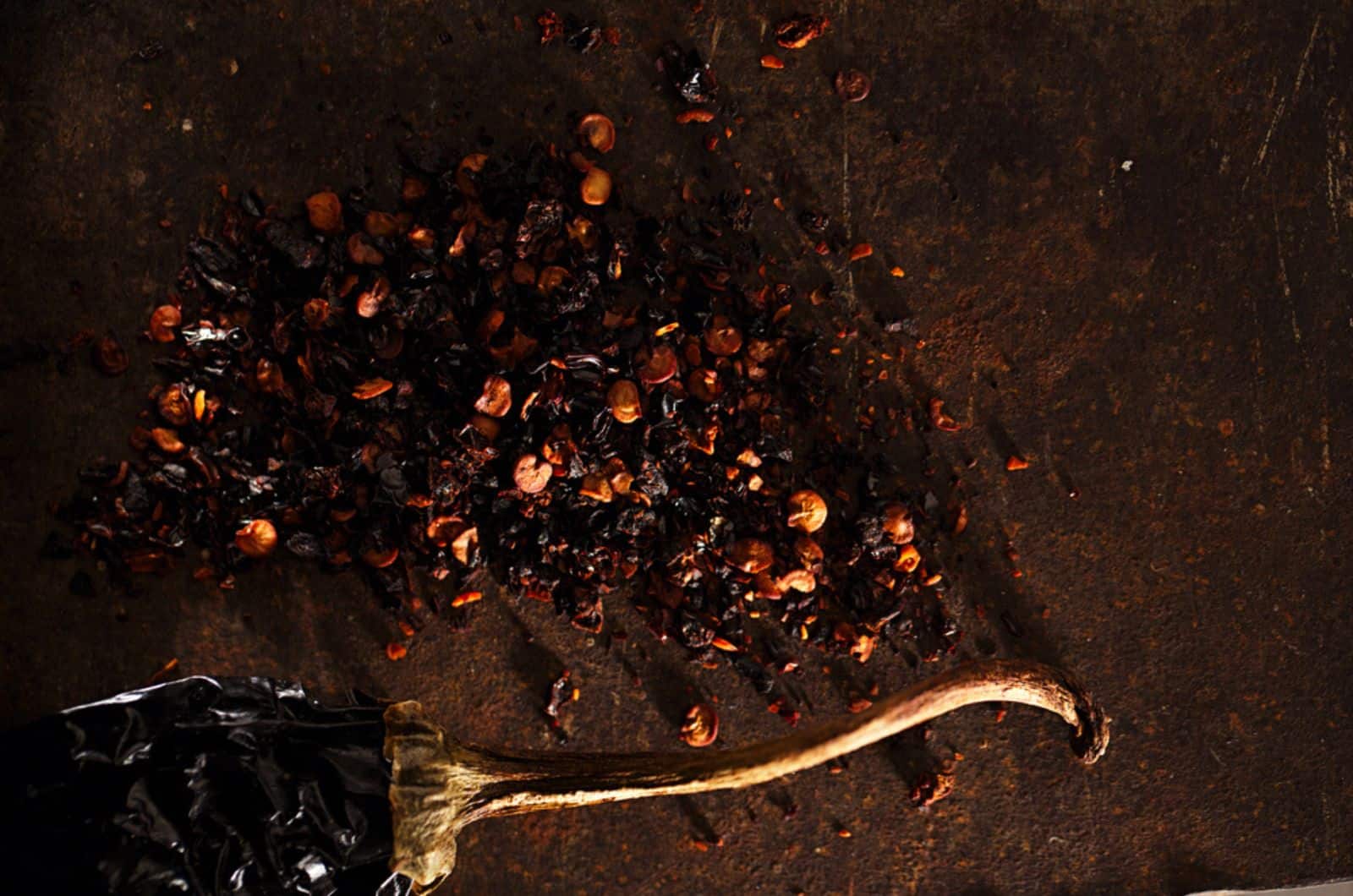
While on the topic of spicy food, let’s go over specific examples of spicy foods which are commonly used to season our food and make it more flavorful.
Cayenne Pepper
A spicy chili pepper that may be used to increase the spiciness in a variety of meals is cayenne. Cats cannot be poisoned by this common spice. However, it can be harmful if consumed in large doses and irritating when consumed in small doses.
Your cat is likely to experience a burning mouth and watery eyes when they eat cayenne pepper. In fact, cayenne pepper mixtures are typically sprayed in places where people don’t want their cats to go…
Jalapeños
Jalapeño pepper is a type of chili pepper some cat owners might enjoy in their meals. But should you give your feline food with jalapeños?
Jalapeños are best avoided because they do contain a fair amount of capsicum. Your cat will be able to feel the spice burning in its mouth. Additionally, it may result in diarrhea, sickness, and stomach upset. Jalapeno seeds contain a lot of capsicum, so make sure your cats do not have them!
Hot Sauce
Our meals might taste better and look more appetizing if we add hot sauces such as sriracha and tabasco. However, hot sauces are not good for cats
Even though the hot sauce is non-toxic and a quick lick might not hurt, cats should never be given it because the burning sensation can be very intense for felines (much more than humans). Overeating hot sauce can upset a person’s stomach and cause vomiting and diarrhea, let alone a cat’s.
Pepperoni
Even though you might be tempted, resist the urge to give your cats any pepperoni! Despite being made of meat and a good source of protein, pepperoni has a high sodium content, and cats should not eat salty food.
Additionally, pepperoni often has garlic, red pepper, and other spices that can cause harmful side effects for felines!
Wasabi
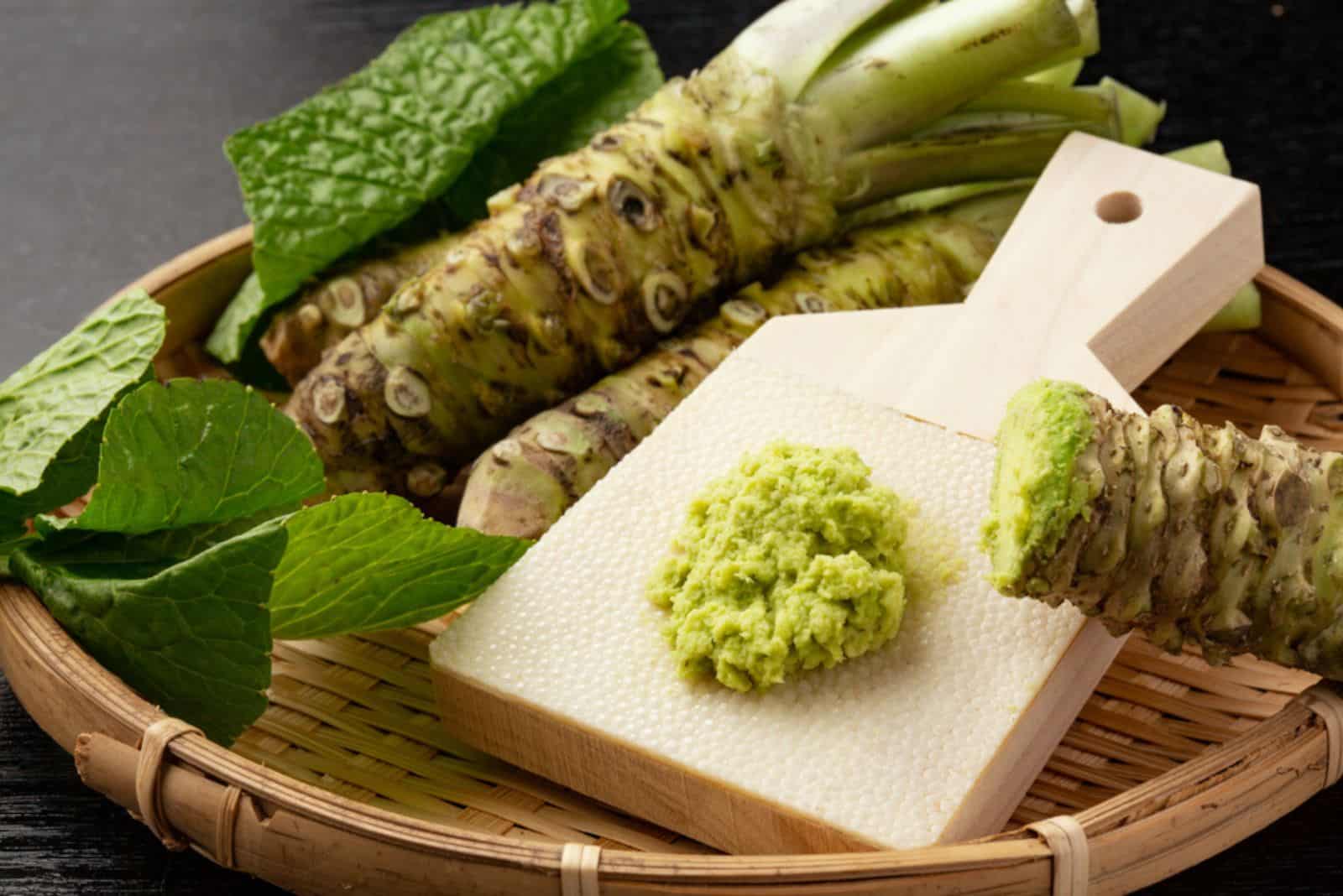
Whether it is fake or real, wasabi contains isothiocyanate. It makes wasabi spicy, but this compound is also considered a cat deterrent. As a result, your cat might only choose to share your wasabi once, and it will surely not become one of their go-to treats.
A small amount of wasabi is unlikely to harm your cat significantly, but eating wasabi does pose a risk of an upset stomach.
Ginger
Ginger is a very healthy food for a cat in small quantities, but it can cause gastrointestinal issues when consumed in large quantities. Therefore, you need to be careful about giving your cat food with ginger in it.
Cinnamon
Most of us use cinnamon in our home cooking, and you can use it for baking in addition to using it as a fantastic spice for meals. So, can cats eat cinnamon? While cinnamon may be a great addition to your meals, it is not a good spice for your cat to eat.
Cinnamon has a high concentration of a substance named coumarin. The problem with coumarin arises when your cat consumes a lot of food containing cinnamon, as they’ll probably get a tummy ache afterwards.
In fact, coumarin is a common ingredient in rat poison! Coumarin does not sit well with cats’ stomachs and can cause many side effects, such as vomiting and panting.
Nutmeg
Another popular spice when cooking spicy food is nutmeg, and it gives it a desirable flavor and a strong aroma. But can cats eat it? No!
Myristicin is a substance found in nutmeg which is toxic for cats and can cause serious digestive issues for cats that eat nutmeg! This substance can also cause your cat to experience hallucinations and increased heart rate.
Nutmeg is commonly found in pumpkin spice, a mix of several spices, including cinnamon, ginger, and cloves. Therefore, keep pumpkin spice away from your cat!
Should A Cat’s Diet Contain Spicy Food?
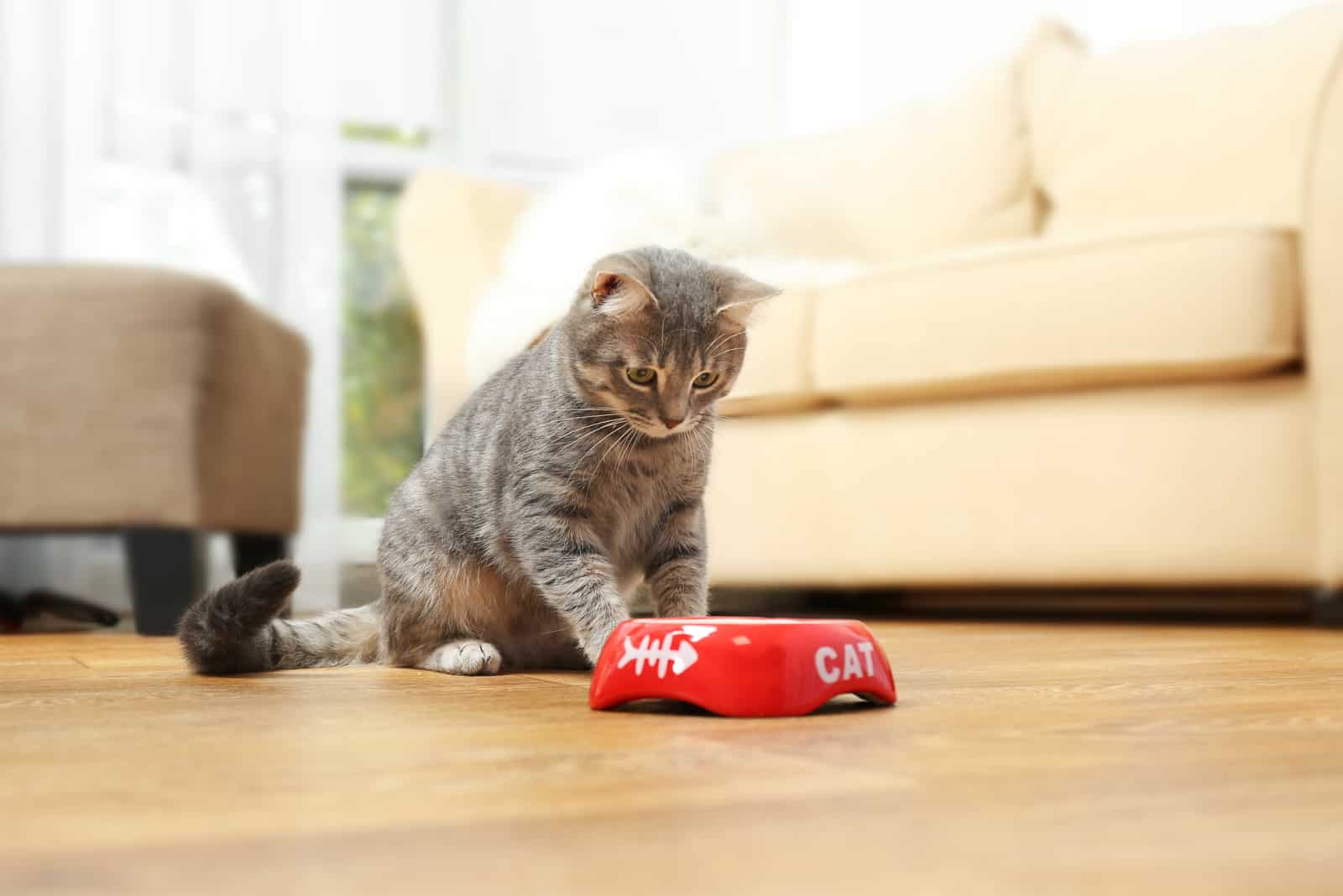
A normal cat diet does not contain spicy food. Just think of what wild cats, the ancestors of our domesticated cats, eat. They certainly don’t eat food with chillies. In fact, a cat’s mouth is not adapted to eating spicy food at all due to spicy food not being a part of their natural diet.
Cats are obligate carnivores that need a lot of meat-derived protein, a little bit of fat, and a tiny bit of carbohydrates.
As cats don’t need any carbs in their diet, they never developed taste receptors for sweetness, the same way a cats’ mouth is not adapted to handle large quantities of spicy food; they simply don’t need sweet and spicy foods in their diet!
In Conclusion
Can cats taste spicy? Like humans, cats are susceptible to the effects of spices, which is a burning hot mouth sensation. Even though some people enjoy it, cats do not.
Our felines are not adapted to eating spicy food, as it’s not a part of their usual diet. Therefore, even a little spiciness can cause discomfort in your cat’s mouth.
Some cats don’t seem to mind the burning sensation and enjoy eating spicy food. Please be cautious about how much spicy food your cat consumes if you own such a cat.
The capsicum in spicy food can cause serious mouth irritation, especially if eaten in large amounts! Not to mention that your kitty will develop stomach upset and digestive issues with a bite too much.
So, as much as you’d like to, it’s best not to share a plate with your feline companion. Instead, serve them the food they are supposed to eat (their cat food) to divert attention from what you are eating!
Related Articles:
Can Cats Eat Bell Pepper? All There Is To Know!
How Long Does It Take A Cat To Digest Food? All You Need To Know
What Do Cats Like To Eat For Breakfast? Plus 3 Yummy Ideas!
Like this post? Share or pin it for later!
